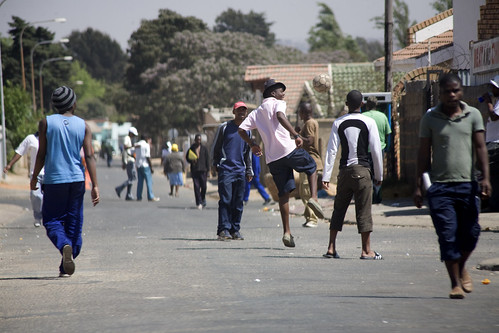
As we continue into the rest of Diepkloof one gets a better idea of how most of the township lives. Throughout the 1950's and 60's the government built "proper" houses for Soweto residents. These matchbox houses, so named for their minimal floor-plans, have proper running water, sewage systems, and electricity. Until 1994 these matchbox houses were available only as rented units from the government. Ownership was not only prohibited by law, but by the sheer economics of the township.
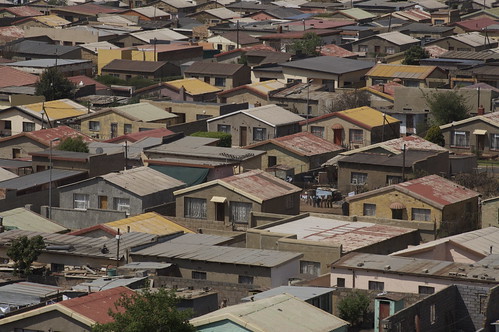
Many of the matchboxes have since been augmented with roughly constructed additions built with materials scavenged from construction sites or purchased from scrap yards. They now stand literally elbow to elbow with no easements. Many also have corrugated iron shacks in their yards, these aren't for storage, they are, incredibly, rental units for those who have come to Soweto from the countryside in search of better living conditions. Laughable by modern standards, these corrugated shacks represent income for many of Soweto's residents who otherwise have no marketable skills. Rents for these shacks can be as much as 150 Rand a month.
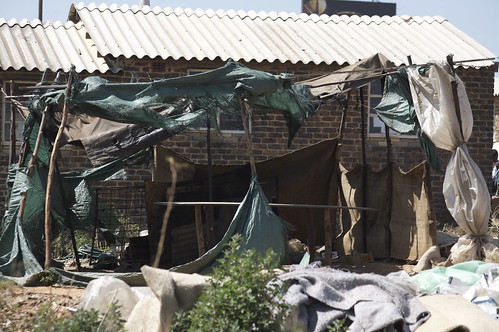
The occasional tuck shop, or convenience store, provide basics to the neighborhood as many of its residents cannot make the trek to markets that are car-distances away. Brightly colored public phone booths provide communication for the township. The woeful lack of a public transportation system is just another in a series of shortcomings that Soweto's residents must deal with. Black taxis, over-crowded mini busses, and make-shift horse carts are Soweto resident's only means of transport. The bicycle is conspicuously absent.
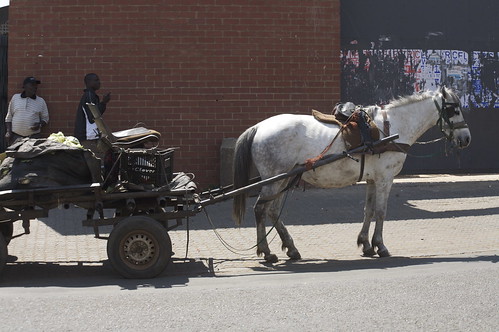
We leave Diepkloof and head to a nearby taxi rank, a depot for black taxis, where an informal market occupies a dirt lot. At the market entrance is a crudely erected tent; four unpainted steel poles and a dusty tarp provide shade for a make-shift table where the food is served. And it's served directly on the table next to tin cups, except for the rice, which would probably stick the the splinters of the raw wood top. The patrons welcome me to try the local fair with a chuckle. I'm adventurous, but not that brave.
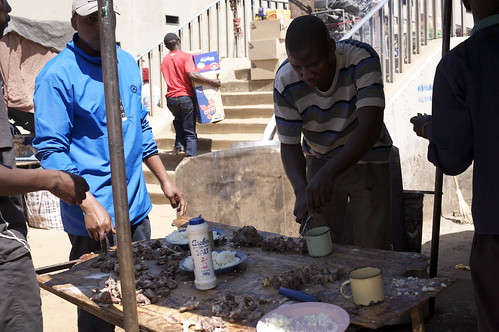

Aisles of stalls selling anything from produce to batteries comprise the market. Sellers break up large bulk purchases from the wholesale market across town, but not all sellers have managed the same scale. Some are selling individual candies and fruit for a few Rand a piece while others have larger operations. Everyone does what they can to eek out a living, trying to get enough Rand to have a single meal for the day.
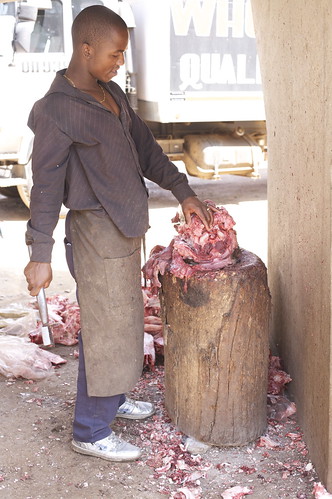


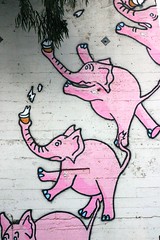

No comments:
Post a Comment